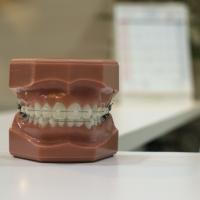Home > Blog > Skin and Body
Questions to ask a urologist during your first appointment.

Having your first urology appointment can be an overwhelming experience. Urology is one of the more sensitive specializations when it comes to medical check-ups. People are usually scared or anxious about these appointments because they involve inspecting the penis, testicles, and prostate. Even though the examination is not painful nor dangerous, patients exhibit considerable reticence towards the experience.
Referring to a urologist should become a common practice, minding that an appointment can prevent quarrelsome illnesses early before they affect one’s quality of life. This short article will present a few questions that patients should address during their first appointment with a urologist. Patients consider some of these questions rather intimate, and they can feel ashamed or nervous when addressing them. Urologists are acquainted with these topics, and there’s no reason to avoid them.
What tests do I need to get?
Patients might fear procedures they don’t even have to go through. You should ask about the tests that will be performed on you as a first-timer. Because it’s your first screening, you’ll most likely have to go through more tests than usual to assess your current medical state. Usually, the first appointment with your local urologist will include:
- DRE (Digital Rectal Exam)
- Standard blood and urine tests
- Ultrasounds or X-Rays
- Seminogram (the analysis of your semen)
Is my penis/prostate normal?
Men are often insecure about their penis, testicles, or prostate. Your first meeting with your urologist should answer any question you may have about the look and feel of your genital organs. Penises come in a vast array of lengths, girths, and colors, but if you have any concerns about your organs’ aspect, feel free to ask. The same goes for penis curvature, which is frequently associated with abnormalities, causing insecurity in men. This is the perfect moment to talk about firmness, frequency of erections, or any pain that may appear during sexual intercourse or urinating.
What happens if I have BPH?
BPH (Benign Prostatic Hyperplasia) is a common affection among men that starts developing early in life. The uncontrollable growth of the prostate leads to losing the ability to empty the bladder. BPH is not in any way related to cancer, and it is treatable. In case you get this diagnosis, your urologist will choose the least invasive treatment scheme that’s suitable for you. The symptoms of BPH include:
- Frequent need to urinate
- Weaker flow when urinating
- Interrupted urinating
- Difficulty in starting or stopping to urinate
- Pain while urinating
- Strains of blood present in the urine
What personal information do I need to share?
Sharing your background with the urologist is a must, but you’ll need to know what to share first. Going into too much detail can be uncomfortable, while omitting aspects can be dangerous. Ask for the exact information that you need to share and answer these questions point by point. You may be asked:
- If you smoke or ever had issues with kidney stones
- If you’re taking any medication
- If you’re sexually active
- What’s your urine’s color
- If you had any urology affections in the past
- If you feel any pain
Don’t be afraid to use medical terms if you feel more secure with them. If you live in Miami, Broward, or Palm Beach county, you can contact a local urologist from Gousse Urology in West Palm Beach (website) to evaluate and provide recommendations for your urology conditions. After the first appointment, seeing the physician regularly should be more comfortable, becoming part of your medical routine.
Even though you might experience a significant stress build-up before a urology appointment, there’s nothing to worry about. Urologists see dozens of patients each day, and they are familiar with all aspects you may be anxious about. Address the questions presented here, collaborate with your urologist, and everything should run smoothly.
More to Read:
Previous Posts:






